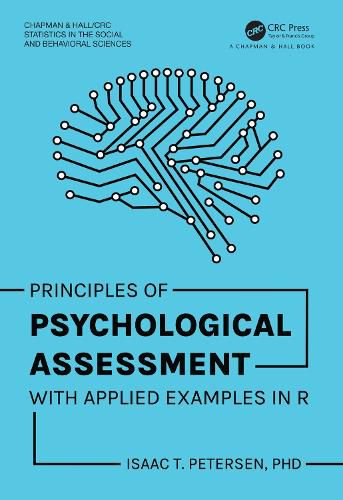Readings Newsletter
Become a Readings Member to make your shopping experience even easier.
Sign in or sign up for free!
You’re not far away from qualifying for FREE standard shipping within Australia
You’ve qualified for FREE standard shipping within Australia
The cart is loading…






This book highlights the principles of psychological assessment to help researchers and clinicians better develop, evaluate, administer, score, integrate, and interpret psychological assessments. It discusses psychometrics (reliability and validity), the assessment of various psychological domains (behavior, personality, intellectual functioning), various measurement methods (e.g., questionnaires, observations, interviews, biopsychological assessments, performance-based assessments), and emerging analytical frameworks to evaluate and improve assessment including: generalizability theory, structural equation modeling, item response theory, and signal detection theory. The text also discusses ethics, test bias, and cultural and individual diversity.
Key Features
Gives analysis examples using free software Helps readers apply principles to research and practice Provides text, analysis code/syntax, R output, figures, and interpretations integrated to guide readers Uses the freely available petersenlab package for R
Principles of Psychological Assessment: With Applied Examples in R is intended for use by graduate students, faculty, researchers, and practicing psychologists.
$9.00 standard shipping within Australia
FREE standard shipping within Australia for orders over $100.00
Express & International shipping calculated at checkout
This book highlights the principles of psychological assessment to help researchers and clinicians better develop, evaluate, administer, score, integrate, and interpret psychological assessments. It discusses psychometrics (reliability and validity), the assessment of various psychological domains (behavior, personality, intellectual functioning), various measurement methods (e.g., questionnaires, observations, interviews, biopsychological assessments, performance-based assessments), and emerging analytical frameworks to evaluate and improve assessment including: generalizability theory, structural equation modeling, item response theory, and signal detection theory. The text also discusses ethics, test bias, and cultural and individual diversity.
Key Features
Gives analysis examples using free software Helps readers apply principles to research and practice Provides text, analysis code/syntax, R output, figures, and interpretations integrated to guide readers Uses the freely available petersenlab package for R
Principles of Psychological Assessment: With Applied Examples in R is intended for use by graduate students, faculty, researchers, and practicing psychologists.